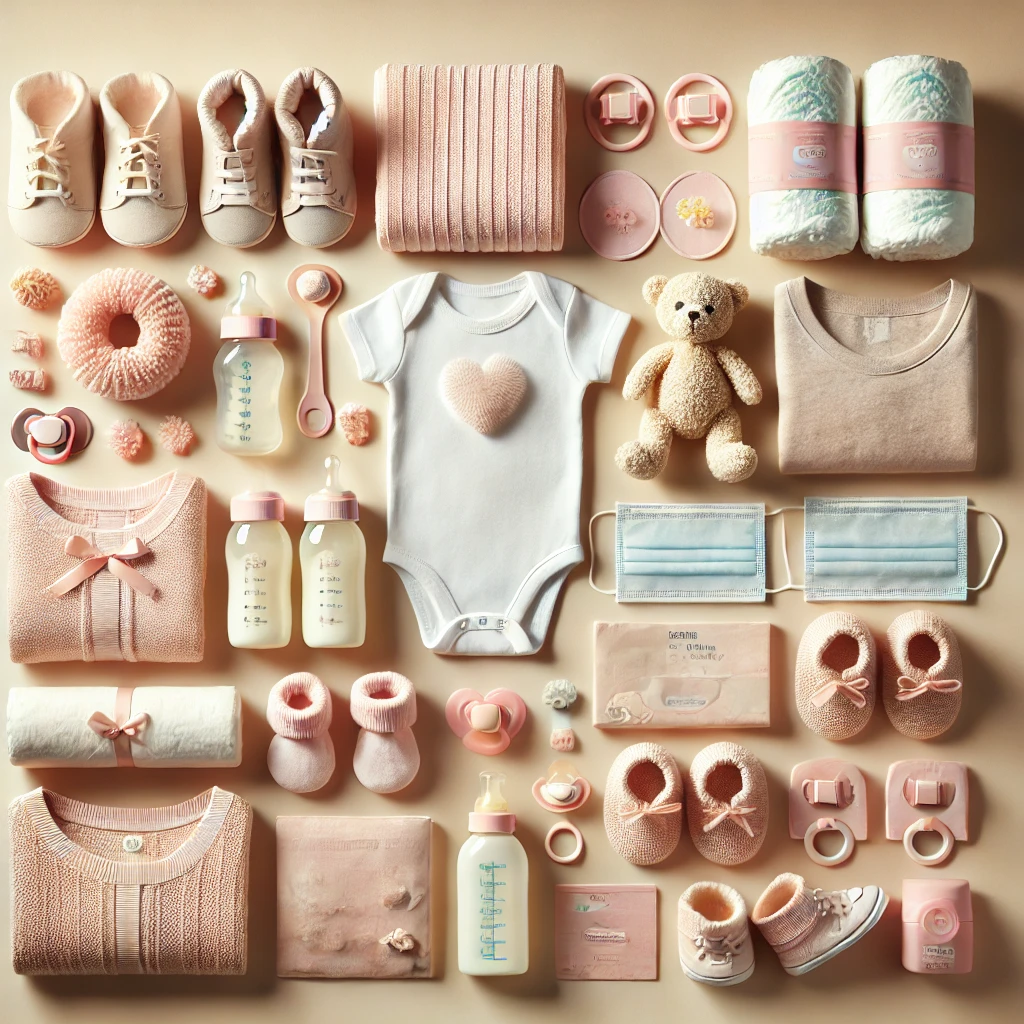
Introduction to newborn stage
1. Understanding the Newborn Stage
The newborn stage, typically defined as the first month of a baby’s life, is a time of rapid development and adjustment. Newborns require near-constant attention, feeding, and comfort as they adapt to life outside the womb. For new parents, this stage can be as exhausting as it is fulfilling, with new routines and responsibilities to learn and adjust to daily.
The newborn stage isn’t only about physical care. It also involves developing an emotional connection with your baby. From recognizing basic cues to understanding sleep and feeding needs, becoming familiar with the various aspects of newborn care can help ease the transition for both you and your baby.
2. Preparing for Baby’s Arrival

Preparation for the newborn stage can alleviate much of the stress that new parents experience. Setting up the nursery with essentials like a crib, changing table, and storage for diapers and clothing helps establish a safe and organized space. Parents should also prepare a hospital bag that includes essentials for both mom and baby, such as clothes, toiletries, and any necessary medications.
Getting family and friends involved in preparation can also offer great emotional support. Consider enlisting a close friend or family member to help with meal planning or organizing newborn supplies. A prepared home can lead to a smoother transition once you bring your newborn home. Buy Newborn Essentials on Amazon.
3. First Week Adjustments
The first week is a time of major adjustment. You’ll be getting used to the frequent feedings, diaper changes, and sometimes irregular sleep patterns of your baby. This week is about learning what works best for your baby, understanding their cues, and finding ways to balance your needs with theirs. Don’t hesitate to ask for help from family, friends, or even professionals, like lactation consultants, if you encounter challenges during this initial period.
4. Feeding Your Newborn

Feeding a newborn is an essential part of bonding. New parents often choose between breastfeeding and formula feeding, based on personal preference or health requirements. For breastfeeding, lactation consultants can offer guidance on latching, feeding positions, and handling any initial challenges.
Formula feeding, on the other hand, requires selecting the right formula and learning safe preparation and storage practices. Establishing a feeding schedule is key, though flexibility is also important since newborns often “cluster feed” during certain periods, which can feel demanding but is perfectly normal.
5. Newborn Sleep Patterns

Newborns sleep frequently but in short bursts, often sleeping 16-18 hours daily. Their sleep cycles are shorter, meaning they wake up every few hours. Establishing a sleep routine can help, but keep in mind that newborns may not follow a strict schedule. Developing a calm bedtime routine—such as feeding, a brief cuddle, or rocking—can help signal it’s time for sleep.
6. Diapering and Hygiene

Newborns need diaper changes often, usually every 2-3 hours. Gentle, hypoallergenic wipes and mild diaper creams can prevent rashes, while regular cleaning ensures a healthy diaper area. Bathing only needs to happen a few times a week, as newborn skin is very sensitive. We recommend Dyper products for your baby diaper. Buy on Amazon here.
7. Handling and Comforting Your Baby

Holding and soothing your baby builds a feeling of security for them. Swaddling, gentle rocking, and skin-to-skin contact are excellent techniques for comfort. Swaddling especially helps recreate the snug feeling of the womb, which can calm your newborn.
8. Newborn Health Essentials
Newborn health check-ups are crucial during the first month. Doctors monitor for healthy weight gain, check reflexes, and administer essential vaccinations. It’s also important to track signs of a healthy newborn—like feeding patterns, sleep, and regular diaper changes.
9. Bonding and Attachment
Building a bond with your newborn is a process that involves touch, sound, and eye contact. Skin-to-skin contact, soft singing, and holding your baby close foster a strong sense of security and trust, which are essential for healthy emotional development.
10. Understanding Baby Cues
Newborns communicate through cues, such as crying, rooting, or fidgeting. Understanding these cues helps parents respond effectively to their baby’s needs, creating a stronger connection. Over time, you’ll learn to recognize patterns in your baby’s behavior.
11. Dealing with Newborn Crying

Newborns cry as a way of expressing needs, which could range from hunger to discomfort. Figuring out the reasons for crying and comforting techniques like swaddling, white noise, or gentle rocking can ease the stress of constant crying episodes.
12. Basic Newborn Development Milestones
During the first month, newborns start to exhibit early development milestones, like tracking objects with their eyes, lifting their heads briefly during tummy time, and responding to sounds. These milestones are signs of healthy growth, but every baby develops at their own pace.
13. Maintaining Parent Health and Well-being
Parenting a newborn is physically and emotionally demanding. Self-care is essential; it can be as simple as taking a short nap, meditating, or connecting with a support group. Being well-rested and mentally prepared helps parents better care for their baby.
14. Managing Common Newborn Issues
Colic, reflux, and diaper rash are common issues in newborns. Identifying signs early and consulting with healthcare professionals as needed can help manage these issues. Gentle soothing techniques and dietary adjustments can often make a difference.
15. Essential Newborn Supplies
A well-stocked nursery includes diapers, wipes, onesies, burp cloths, and feeding supplies. These essentials support daily care and help parents feel prepared. Keeping extra supplies on hand minimizes trips to the store, giving parents more time to focus on their newborn.
Frequently Asked Questions
How often should a newborn be fed?
Newborns typically feed every 2-3 hours, but some may feed more frequently, especially during growth spurts.
What is the best way to hold a newborn?
Support the head and neck at all times. Many parents find a cradling or upright position comforting.
How much sleep should a newborn get?
Newborns sleep around 16-18 hours daily, though in short stretches of 2-4 hours.
What are some tips for bonding with a newborn?
Skin-to-skin contact, gentle speaking, and eye contact are effective ways to bond.
How can I calm a crying newborn?
Swaddling, rocking, and using white noise are common methods for soothing a newborn.
When should I take my newborn for a check-up?
Newborns usually have their first check-up within a week of birth and then at regular intervals afterward.
How long is the newborn stage?
The newborn stage typically lasts from birth until around two months of age. This period is marked by rapid physical and emotional growth, as well as constant care and nurturing from parents.
When does the newborn stage end?
The newborn stage generally ends at about 8 weeks (2 months) of age, though every baby is unique, and the transition into infancy can vary slightly.
How many weeks is the newborn stage?
The newborn stage spans approximately 8 weeks, or about the first two months of a baby’s life.
When does the newborn stage get easier?
The newborn stage often becomes easier as your baby grows and starts to develop a more predictable sleeping and feeding routine, usually around the 6 to 8-week mark. Parents may begin to notice longer sleep stretches and a bit more structure in daily routines, which can ease the demands of this phase.

